LONDON: Former US Secretary of State John Kerry said the Iran nuclear deal “is working” and that the world risks becoming a “less safe” place if the US lets it fall apart after President Donald Trump’s decision last month to not re-certify the agreement.
“It is important to note the simple things. The Iran nuclear agreement is working. It is doing precisely what it is set up to do,” he said on Monday in London.
Kerry was the key US representative alongside diplomats from the UK, France, Russia, Germany and China in the negotiations that led up to the Iran deal, or the Joint Comprehensive Plan of Action (JCPOA), signed in 2015. The deal placed limits on Iran’s nuclear program in return for the easing of economic sanctions on the country.
The decision on the agreement’s future now rests with the US Congress, which has 60 days from Oct. 15, to decide whether to uphold the deal as it stands or demand amendments to it.
Kerry warned an audience at Chatham House that if congress does not re-certify the deal, the US could lose its credibility internationally; Iran may potentially return to its nuclear enrichment program and it could result in Arab countries in the region embarking on an arms race.
“As a child of the Cold War,” he said, “it is really sad for me to see our country and our president putting this issue in such peril.”
Trump has frequently referred to the Iran deal as the “worst deal” he’s ever seen, arguing that the ability to monitor and inspect whether Iran was keeping to the terms of the deal was “weak”. He has been critical of “sunset clauses” that expire after a certain time period which he said would allow Iran to eventually develop its own nuclear weapons.
“We got weak inspections in exchange for no more than a purely short-term and temporary delay in Iran’s path to nuclear weapons,” he said in a statement on Oct. 13.
Kerry said Trump’s stance is not based on any evidence at all, saying the IAEA has asserted that Iran is compliant with the terms of the deal. “The decision to de-certify was made without relevance to any fact whatsoever in respect to this agreement,” he said.
“There is no evidence that merits de-certification,” he said, adding “it is beyond me” how congress — which was not part of the original negotiations — is now being called upon to “fix” the deal.
Kerry has previously referred to Trump’s decision as “dangerous”, accusing him of creating an “international crisis”, in a statement on Twitter last month.
While answering audience questions, Kerry also criticized Israeli Prime Minister Benjamin Netanyahu’s hard-line opposition to the Iran deal, saying that the Israeli leader had previously urged Barack Obama during his presidency to bomb Iran.
“Bombing Iran doesn’t necessarily stop Iran having a nuclear bomb,” he said, adding that such a move would only give Iran a reason for wanting a weapon to defend themselves.
“What is this rush for war? It doesn’t make sense,” Kerry said.
Netanyahu shifted his stance last week during his visit to the UK, calling for “flaws” in the deal to be fixed, rather than demanding the outright cancelation of the agreement.
Kerry said that the nuclear deal does not mean the international community is ignoring the “serious problems” it has with some of Iran’s policies, such as its interference in Yemen; its human rights track record or the country’s attempts to import equipment for its rock and missile development.
“It is better to deal with a country that doesn’t have a nuclear weapon, than if it does. It’s a simple proposition,” Kerry said.
“You are better off with it (the deal) than without it. We are moving in the right direction and we have to keep moving in the right direction.”
Don’t alter the Iran nuclear deal — it’s working, says Kerry
Don’t alter the Iran nuclear deal — it’s working, says Kerry

Trump: Houthi attacks will continue for long time

US airstrikes against the Houthis in Yemen will continue for a long time, President Donald Trump said Wednesday.
His comments came shortly after Houthi media said new US strikes had hit the capital Sanaa, AFP reported. Earlier reports said there had been 19 US raids elsewhere in Yemen.
The US said it was launching a military offensive against the Houthis on March 15, to stop the group attacking shipping in the Red Sea - a key global trade route.
The militant Iran-backed group started the attacks after the start of the Gaza war, claimig they were acting in solidarity with Palestinians.
Iraq gives British Petroleum final green light to redevelop Kirkuk oilfields

- First phase of project will cover their Baba and Avanah domes and three adjacent fields
- British Petroleum helped to discover the giant Kirkuk oilfields in the 1920s
LONDON: BP has received final government approval for the redevelopment of Iraq’s giant Kirkuk oil fields, with an initial plan to produce 3 billion barrels of oil equivalent, the company said on Wednesday.
The project is a breakthrough for Iraq, where output has been constrained by years of war, corruption and sectarian tensions, and a cornerstone of BP’s drive to refocus on its oil and gas business and away from renewables.
Tuesday’s signing of a final agreement on the project between BP CEO Murray Auchincloss and Iraq’s Prime Minister Mohammed Shia Al-Sudani follows an initial deal signed last month and a memorandum of understanding last year.
BP said its remuneration will be linked to incremental production volumes, price and costs, and that the company will be able to book a share of output and reserves “proportionate to the fees it earns for helping to increase production.”
The first phase of the redevelopment of the Kirkuk fields, which BP first helped to discover in the 1920s, will cover their Baba and Avanah domes and three adjacent fields Bai Hassan, Jambur and Khabbaz, BP said.
A new operator will be set up, including staff from Iraq’s North Oil Company (NOC) and North Gas Company (NGC) as well as people seconded from BP.
Nearly 200,000 Palestinians perform prayers at Al-Aqsa Mosque

- Thousands choose to stay at site overnight
- Worshippers attend despite Israel’s restrictive measures
LONDON: Nearly 200,000 Palestinians performed evening and Taraweeh prayers on Wednesday, the 26th day of Ramadan, at Al-Aqsa Mosque in Jerusalem.
It is one of the highest numbers of worshippers recorded at Al-Aqsa during Ramadan by the Jerusalem Waqf and Al-Aqsa Mosque Affairs Department, which is responsible for managing the site.
The organization reported that 180,000 people attended the evening and Taraweeh prayers, despite Israel’s restrictive measures in Jerusalem, with thousands of worshippers choosing to stay at Al-Aqsa Mosque overnight to commemorate Laylat Al-Qadr, also known as the Night of Power.
Muslims consider Laylat Al-Qadr to be the holiest night in the Islamic calendar as it marks the occasion when the first verses of the Qur’an were revealed to the Prophet Muhammad. Laylat Al-Qadr occurs during the last 10 days of Ramadan, a period when many Muslims fully dedicate themselves to worship.
Upon the conclusion of Ramadan on Saturday or Sunday, majority-Muslim countries celebrate the holiday of Eid Al-Fitr over three days, marking the festivities of breaking the fast with family visits and trips.
Is US pressure on Iraq over reliance on Iranian electricity a blessing in disguise?

- The US has ended a key sanctions waiver, increasing pressure on Iraq to reduce its reliance on Iranian gas and electricity
- Baghdad is trying to integrate with the GCC power grid to enhance energy security, much to the chagrin of Iran-backed factions
DUBAI/LONDON: Iraq has long had to balance its relationships between competing regional powers, particularly Iran and the Gulf states. Now, with renewed US harrying of Iraq to stop buying gas and electricity from Iran, Baghdad could be drawn further into the Arab orbit.
On March 8, the US State Department said it was not renewing a sanctions waiver that had allowed Iraq to import Iranian electricity. The waiver, initially introduced in 2018 after the US withdrew from the Iran nuclear deal, has been a lifeline for Iraq’s struggling power grid.
Despite its vast oil and gas wealth, years of conflict, corruption, and underinvestment have left Iraq highly dependent on Iranian gas and direct electricity imports to meet its energy needs. Power outages are commonplace, especially in the scorching summer months.
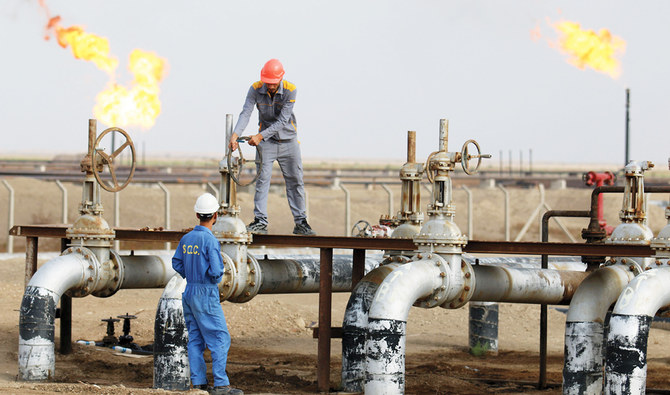
The US decision came as part of President Donald Trump’s “maximum pressure” campaign on Iran, which is “designed to end Iran’s nuclear threat, curtail its ballistic missile program and stop it from supporting terrorist groups,” according to a statement from the US Embassy in Baghdad.
“We urge the Iraqi government to eliminate its dependence on Iranian sources of energy as soon as possible, and welcome the Iraqi prime minister’s commitment to achieve energy independence,” the statement added.
In a call with Prime Minister Mohammed Shia’ Al-Sudani on March 9, US National Security Adviser Mike Waltz encouraged Baghdad to welcome more Western and US energy companies into Iraq’s oil and gas sectors.
According to a readout from that call, Waltz also urged the Iraqi government to work with the semi-autonomous Kurdistan Regional Government of northern Iraq to address remaining contract disputes over energy and to pay arrears owed to US energy companies.
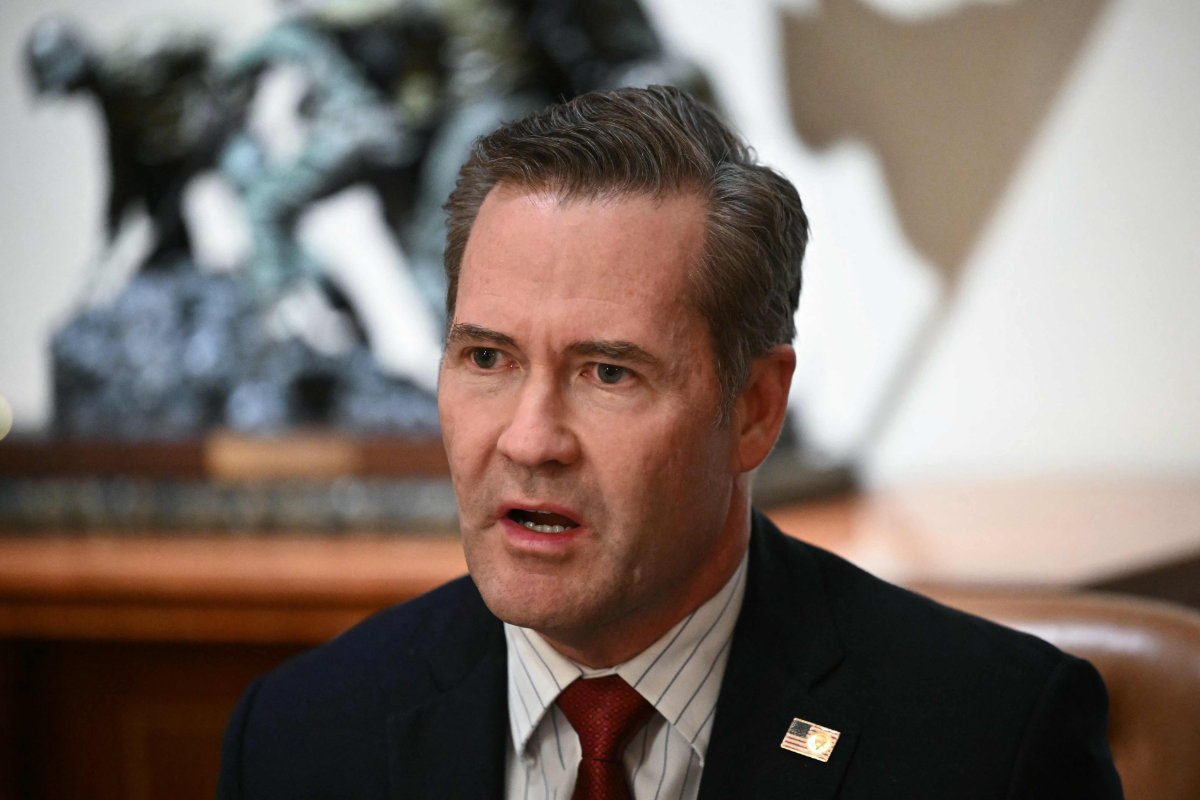
Iranian Foreign Minister Abbas Araghchi took to social media on March 10 to criticize the US move, saying it targeted the people of Iraq by attempting to deprive them of access to basic services such as electricity, particularly ahead of the approaching summer months.
With the waiver rescinded, it remains unclear whether Iraq will be permitted to continue importing gas from Iran to feed its power plants. Indeed, some 43 percent of the country’s electricity is generated from Iranian gas.
On March 12, Farhad Alaaeldin, the Iraqi prime minister’s foreign affairs adviser, told a local TV channel that the waiver guaranteed by the US on the import of gas was still in effect — and that only the exemption on imported power has been canceled.
Alaaeldin said the US was, for now at least, merely encouraging Iraq to secure gas from other sources. “The American administration says … diversify your import sources. Go to other countries,” he said.
The US Embassy statement asserted that electricity imports from Iran represent only 4 percent of electricity consumption in Iraq.
But a spokesperson for Iraq’s Ministry of Electricity, Ahmad Moussa, told the Associated Press that should gas imports also be forbidden, it “would cause Iraq to lose more than 30 percent of its electricity energy.”
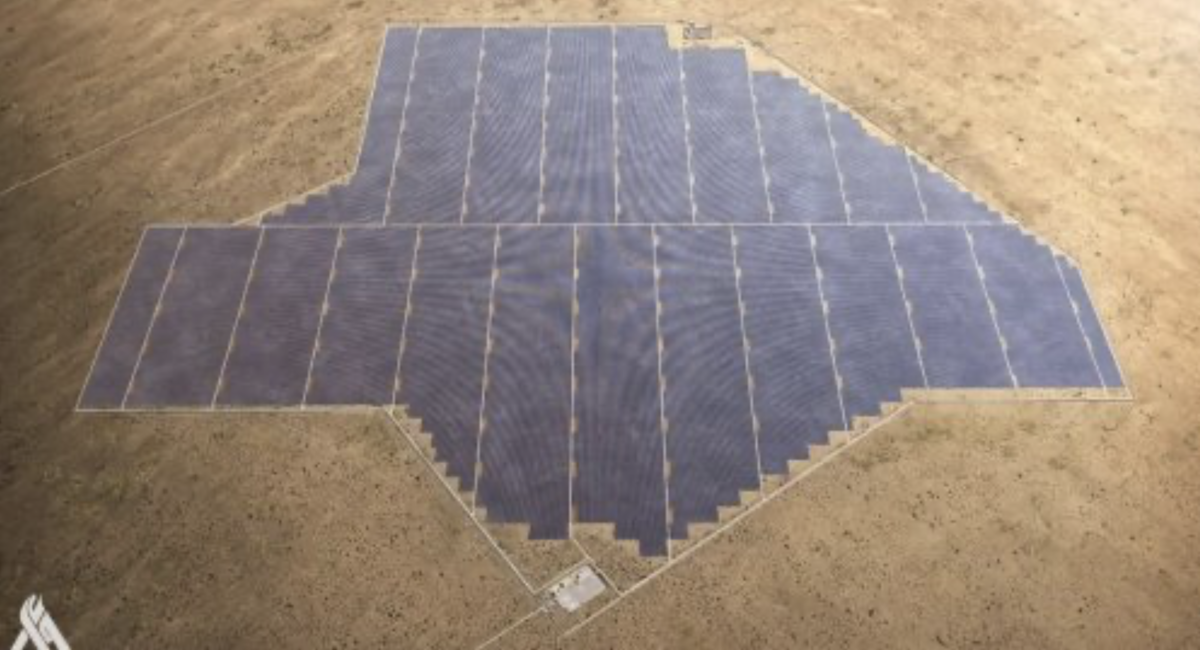
Although this renewed pressure on Baghdad has officials scrambling to find alternatives, it arguably presents an opportunity for Iraq to pivot toward the Gulf states, integrate into the Arab fold, and thereby reduce its reliance on Tehran.
The question now is whether the Iraqi government will seize the moment to achieve energy independence or remain tethered to Iran’s energy infrastructure.
Achieving true energy independence will not be easy.
In 2022, Iran exported 3.5 terawatt hours of electricity to Iraq through four transmission lines. Iraq also imports up to 50 million cubic meters of gas per day from Iran. The neighbors signed a five-year extension to their gas export agreement in March 2024.
Talks on Iranian gas exports to Iraq began in the second half of 2010, shortly after the US military withdrawal following the 2003 invasion, leading to the signing of a supply agreement for Baghdad in July 2013. A contract for gas exports to Basra was signed in November 2015.
Iraq spends about $4 billion annually on Iranian energy, but US sanctions have delayed the country’s ability to make timely payments, leading to substantial debt accumulation, estimated at $11 billion.
To settle this debt, Iraq proposed an oil-for-gas deal in 2023, allowing it to repay Iran with crude. However it chooses to make these repayments, this significant debt burden poses a further challenge to severing links.
According to Iraq’s Parliamentary Oil, Gas and Natural Resources Committee, securing alternative sources of energy has proven difficult, with past diversification efforts delayed by bureaucracy and political resistance from Iran-backed factions in Baghdad.
Despite the challenges, Iraq has begun taking concrete steps toward integrating with the Gulf Cooperation Council’s energy network. An Oct. 9, 2024, agreement to connect Iraq to the GCC Interconnection Authority marked a significant milestone.
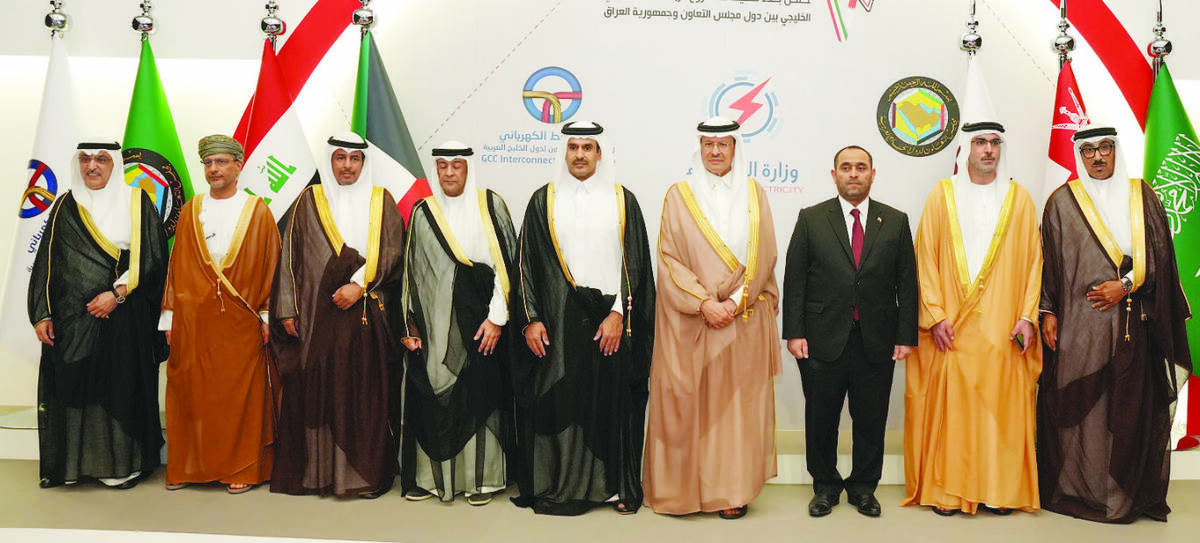
The GCCIA was originally established to link the power grids of Bahrain, Kuwait, Oman, Qatar, Saudi Arabia, and the UAE. Iraq’s inclusion in this grid would not only reduce its reliance on Iranian gas but also enhance regional energy cooperation.
Under the agreement, Iraq will receive 500 megawatts of electricity through transmission lines from Kuwait’s Al-Wafra station to Al-Faw in Basra. A separate deal with Saudi Arabia is expected to add another 1,000 megawatts to Iraq’s power supply.
Given its own significant domestic energy challenges, including infrastructure problems and environmental factors such as droughts that have reduced its hydroelectric output, there is even a case to be made for Iran benefitting from integration into the broader GCCIA grid.
Elsewhere, Iraq has partnered with Saudi Arabia’s ACWA Power, the UAE’s Masdar, and France’s TotalEnergies to develop solar power plants, although these projects are still years away from completion.
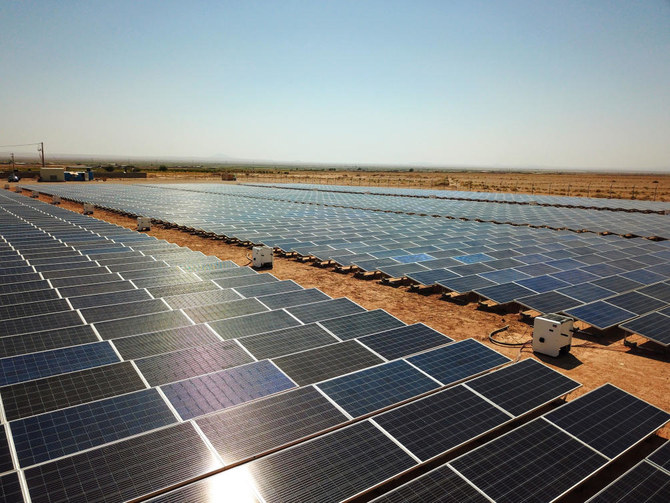
Beyond the Gulf grid, Iraq is pursuing additional measures to reduce its dependence on Iranian energy, including an agreement with Turkmenistan in October 2023 to import 20 million cubic meters of gas per day.
Meanwhile, a 115-km transmission line with Turkiye now supplies 300 megawatts of electricity to northern Iraq. Iraq is also building a liquefied natural gas terminal in Al-Faw with a storage capacity of 300,000 cubic meters.
Despite these efforts, Iraq’s transition away from Iranian energy still faces major hurdles.
“The current production of domestic gas cannot replace Iranian imports at this stage, as achieving self-sufficiency requires several years of development and investment,” Iraqi economic analyst Nabil Al-Marsoumi said in a recent social media post.
Even as Iraq moves toward energy diversification, Iran is unlikely to relinquish its grip without resistance.
Tehran exerts significant political influence in Baghdad through Iran-backed militias and Shiite political factions. These groups view stronger GCC ties as a threat to their dominance and have historically opposed efforts to reduce Iraqi dependence on Iranian energy.
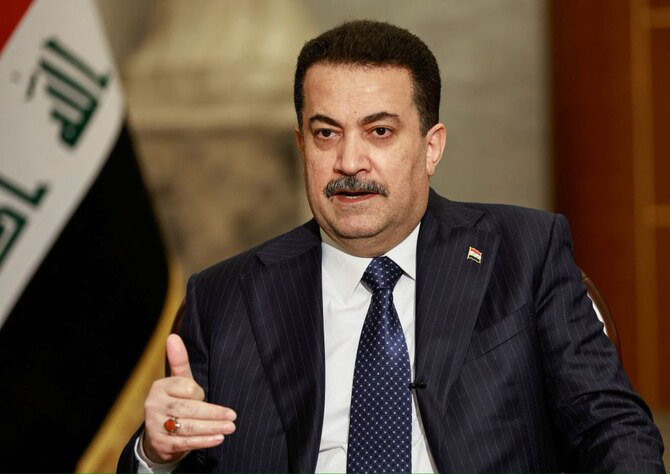
Prime Minister Al-Sudani initially sought a waiver extension until 2028, arguing that Iraq needed more time to secure alternative energy sources. However, under US pressure, he ultimately relented and announced Iraq’s compliance with sanctions.
His decision sparked criticism from pro-Iranian factions within Iraq, further illustrating the political tightrope he must walk.
Ordinary Iraqis, meanwhile, remain skeptical. Many citizens believe their leaders are beholden to Iran’s interests rather than prioritizing national energy security.
“As long as those in power remain loyal to Iran, they will do whatever it takes to keep us reliant on it,” Modhar, a Baghdad-based driver, told Arab News.
For Gulf states, deepening energy ties with Iraq presents both opportunities and risks. A more integrated Iraq could serve as a bridge between the Arab world and Iran, facilitating broader regional cooperation.
Additionally, stronger economic ties with Baghdad could help Gulf economies diversify their own economies beyond oil exports.
However, Gulf countries must also navigate Iraq’s internal political landscape carefully. Any overt effort to pull Iraq away from Iran risks provoking retaliation from Iran-backed militias, which have launched attacks on US and Gulf interests in the past.
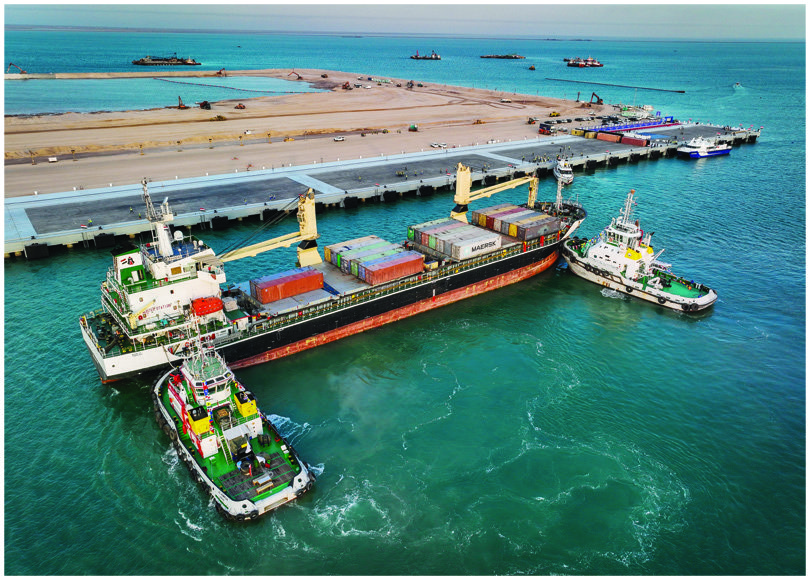
That said, energy interdependence has the potential to be a stabilizing factor. As regional energy demand grows, a Gulf-wide electricity grid that includes Iraq could provide a reliable supply and reduce dependence on volatile suppliers like Iran.
With the GCC currently producing 272 gigawatts of electricity, a fully integrated power grid could transform Iraq’s economy and cement its position within the Arab fold. How Iraq responds in the coming months will define its future for years to come.
The suspension of the US sanctions waiver has forced Baghdad to confront its reliance on Iranian energy. While the road to energy independence is fraught with challenges, Iraq’s deepening ties with the GCC present a viable alternative.
Whether Iraq can successfully integrate into the GCC’s energy network while balancing its relationship with Iran remains to be seen. However, if Baghdad seizes this historic opportunity, it could finally achieve the energy security and regional influence it has long sought.
As Al-Marsoumi warned: “Key energy projects remain years away from completion.” But the long-term potential of Iraq’s pivot to the GCC is undeniable.
The coming months will determine whether Iraq charts a new course toward the Arab world — or remains in Iran’s shadow.

Increase of US military assets in Middle East points to potential strikes on Houthis

- US has deployed highly sophisticated aircraft and a second aircraft carrier to the region
- Indications US is planning strikes on the Houthis in Yemen and possibly looking to send a strong message to Iran
LONDON: The significant increase of US military assets positioned in the Middle East points to the potential of heavy strikes on Iran-backed Houthi positions in Yemen.
The US has recently deployed highly sophisticated aircraft and a second aircraft carrier to the region.
At least five B-2 stealth bombers have been deployed to Diego Garcia, a British military base used by the US in the Indian Ocean. More are reportedly en route.
Seven C-17 aircraft have also been tracked landing on the remote atoll, suggesting transportation of equipment, personnel and supplies, and refueling aircraft have been repositioned to strategic locations.
The Pentagon recently ordered the USS Harry S. Truman carrier strike group to extend its deployment in the Red Sea by a month, and a second strike group, led by the USS Carl Vinson aircraft carrier, is heading for the Middle East.
It is an unusual surge in military assets and an indication, perhaps, that the US is planning heavy strikes on the Houthis in Yemen and possibly looking to send a strong message to Iran.
The Houthis have repeatedly attacked Red Sea shipping and Israel during the conflict in Gaza.
Those attacks stopped while the ceasefire was in force but have restarted following a resumption of Israeli military operations in Gaza.
The Houthis have vowed to strike Israel’s Ben Gurion Airport and have fired ballistic missiles toward Israel on an almost daily basis in recent weeks, triggering air raid sirens in Tel Aviv and Jerusalem.
The militia claimed to have launched drones at Israel on Tuesday night, but the Israeli military has not confirmed this.
The Trump administration has launched attacks against the Houthis to restore the freedom of shipping in the Red Sea, a crucial waterway for global commerce as it is linked to the Mediterranean Sea via the Suez Canal.
The first wave of those attacks was the subject of a major security breach when a journalist was mistakenly included in discussions between senior US government personnel on the messaging app Signal.
US Defense Secretary Pete Hegseth has promised to continue striking the Houthis for as long as it takes, and President Trump has warned Iran he might be forced to take military action against its nuclear facilities if Tehran does not agree to talks.




















